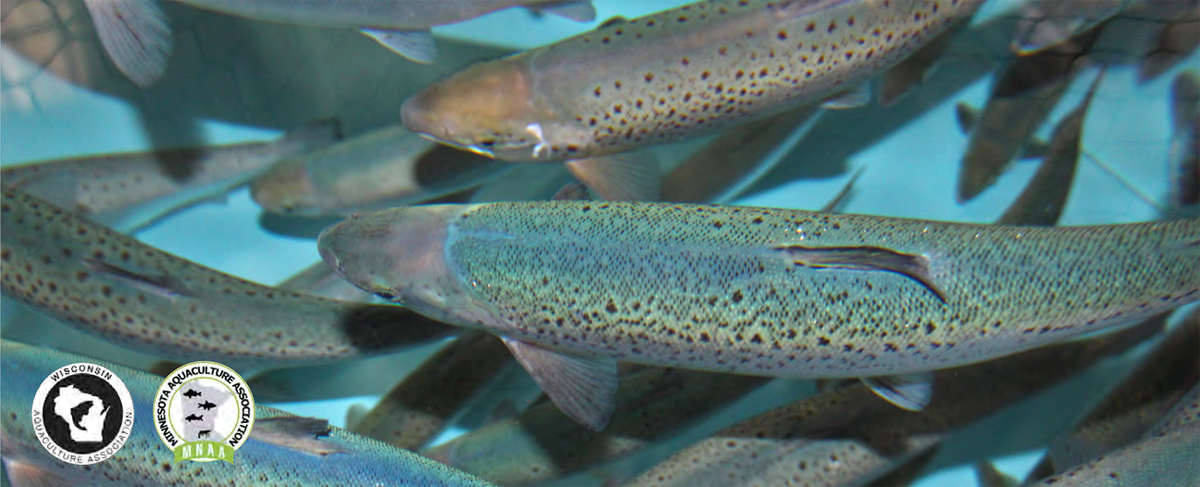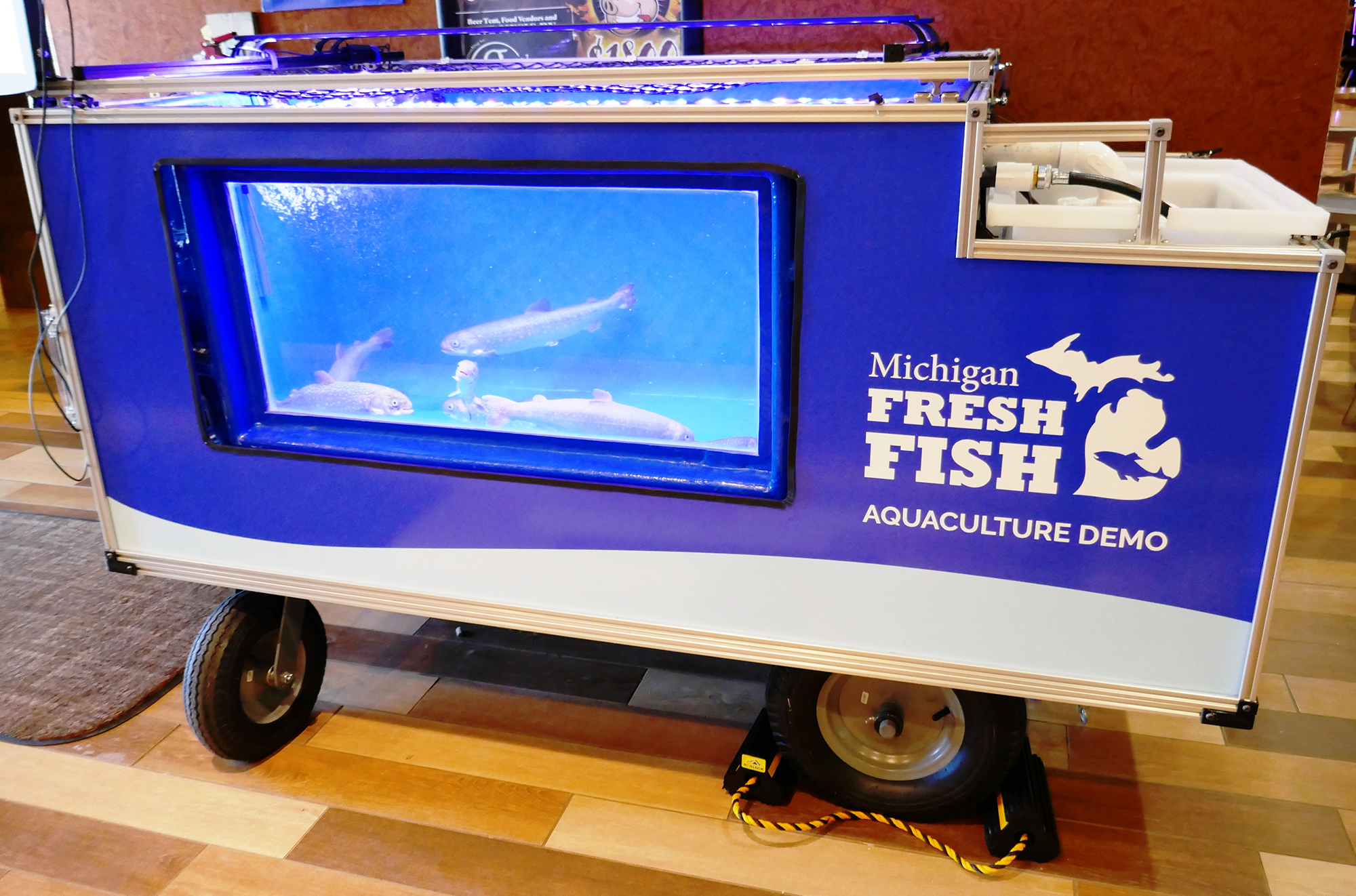
Interest in aquaculture continues to grow in the Great Lakes region as witnessed by a sellout crowd for the 2024 Wisconsin-Minnesota Aquaculture Association meeting held in Red Cliff, Wisconsin, March 22-23.
The annual conference is an opportunity for current aquaculture practitioners, new farmers, educators, students, and the public to learn about aquaculture research and management practices, educational and economic initiatives, fish health, regulations, water quality, workforce development, marketing, and more.
This year, more than 180 participants represented practicing and potential fish producers, academia, state agencies, Great Lakes Sea Grant programs, 4th- through 12th-grade students, and others interested in learning more about aquaculture.
The 2024 WI-MN Aquaculture Conference Agenda includes presenter bios and student abstracts.
Sea Grant Support
Sea Grant was well represented at the conference with fisheries and aquaculture extension educators from five state Sea Grant programs presenting information, hosting sessions, and organizing the conference. Aquaculture Outreach and Education Specialist Emma Hauser from Wisconsin Sea Grant and the Northern Aquaculture Demonstration Facility, deserves a special shout-out for being involved in every aspect of the conference planning and for the overall success of the conference.

Reaching New Audiences for Aquaculture
New at the conference this year was a special emphasis to attract historically underserved communities.
The Minnesota Sea Grant-led Great Lakes Aquaculture Collaborative (GLAC) sponsored students from three historically underrepresented communities to attend the conference and sponsored the Aquaculture in the Classroom session.
Conference presenter La Sonya Luther led the Virtually Empowering BIPOC (Black, Indigenous, and people of color) Youth in Aquaculture session and provided much support for the students to attend the conference. There were six presentations by high-school and undergraduate students and presentations by a third-grade and a fourth-grade student on why they were interested in aquaculture.
"The Sea Grant Great Lakes Aquaculture Collaborative (GLAC) has been working to encourage and support students, producers, and speakers from historically marginalized groups to participate in national and regional aquaculture conferences through travel support and mentoring,” said Amy Schrank, Minnesota Sea Grant extension program leaders, fisheries and aquaculture extension educator, and GLAC project leader.
Food Production and Grocery Store Collaborations
Combining expertise from degrees in business and economics with years of experience as a senior executive in a number of companies including PepsiCo, Glenn Ford’s keynote presentation provided an excellent overview of how collaboration between food production facilities and grocery stores can catalyze the economic development of underserved communities.
Conference Tours
This year's conference included tours of Wisconsin aquaculture facilities including the University of Wisconsin Stevens Point Northern Aquaculture Demonstration Facility, Red Cliff Tribal Hatchery, Red Cliff Fish Company, and Bodin’s processing facility. There were more than 40 diverse and knowledgeable presenters from across the Great Lakes region, and an opportunity to participate in a Recirculating Aquaculture Systems workshop.
Farming Insights: Practices, challenges, and solutions
The Farming Insights session on the last day of the conference is a favorite of farmers who get to talk to other farmers and provide insights and tricks of the trade based on their real-life experience operating their businesses.
Interested in Learning More About Great Lakes Region Aquaculture?
- Sign up for Minnesota Sea Grant’s monthly newsletter.
- Contact your Great Lakes Aquaculture Collaborative state Sea Grant representative.
CONTACT:
Don Schreiner, Fisheries Specialist, Minnesota Sea Grant, University of Minnesota and University of Minnesota Duluth, schr0941@d.umn.edu.
Marie Thoms, Communications Manager, Minnesota Sea Grant, University of Minnesota and University of Minnesota Duluth, methoms@d.umn.edu.
Photo credits:
- Top image: Fish image courtesy of the WI-MN Aquaculture Conference committee.
- Second image: A portable recirculating aquaculture system with Arctic Charr was on display from the Michigan Fresh Fish project. Don Schreiner/MNSG.